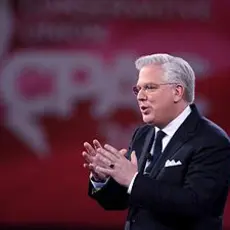The New York Times has a really good, in-depth article taking a look not only at the Tea Party as a movement, which is hard to pin down as just about every right-wing group is trying to attach itself to the effort, but at the people who have become most active in it, noting that many had been apolitical until they were directly impacted by the economic downturn, at which point they began listening to the likes of Glenn Beck and became radicalized:
The ebbs and flows of the Tea Party ferment are hardly uniform. It is an amorphous, factionalized uprising with no clear leadership and no centralized structure. Not everyone flocking to the Tea Party movement is worried about dictatorship. Some have a basic aversion to big government, or Mr. Obama, or progressives in general. What’s more, some Tea Party groups are essentially appendages of the local Republican Party.
But most are not. They are frequently led by political neophytes who prize independence and tell strikingly similar stories of having been awakened by the recession. Their families upended by lost jobs, foreclosed homes and depleted retirement funds, they said they wanted to know why it happened and whom to blame.
That is often the point when Tea Party supporters say they began listening to Glenn Beck. With his guidance, they explored the Federalist Papers, exposés on the Federal Reserve, the work of Ayn Rand and George Orwell. Some went to constitutional seminars. Online, they discovered radical critiques of Washington on Web sites like ResistNet.com (“Home of the Patriotic Resistance”) and Infowars.com (“Because there is a war on for your mind.”).
Many describe emerging from their research as if reborn to a new reality. Some have gone so far as to stock up on ammunition, gold and survival food in anticipation of the worst. For others, though, transformation seems to amount to trying on a new ideological outfit — embracing the rhetoric and buying the books.
Tea Party leaders say they know their complaints about shredded constitutional principles and excessive spending ring hollow to some, given their relative passivity through the Bush years. In some ways, though, their main answer — strict adherence to the Constitution — would comfort every card-carrying A.C.L.U. member.
But their vision of the federal government is frequently at odds with the one that both parties have constructed. Tea Party gatherings are full of people who say they would do away with the Federal Reserve, the federal income tax and countless agencies, not to mention bailouts and stimulus packages. Nor is it unusual to hear calls to eliminate Social Security, Medicare and Medicaid. A remarkable number say this despite having recently lost jobs or health coverage. Some of the prescriptions they are debating — secession, tax boycotts, states “nullifying” federal laws, forming citizen militias — are outside the mainstream, too.
Keep that in mind as you read this:
About 50 leaders of the grass-roots "tea party" movement will meet in Washington on Tuesday with Republican National Committee Chairman Michael S. Steele and other top GOP operatives to discuss campaign strategies and conservative principles.
The afternoon meeting on Capitol Hill will mark the first time that a broad coalition of tea party organizers -- who have railed against both the Democratic and the Republican establishments -- will sit down with GOP leaders. Top Republican leaders have been openly courting the organizers, looking to marshal grass-roots energy heading into November's midterm elections.





